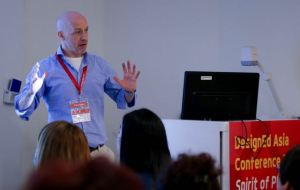I have been thinking about crowds recently not least because of the London riots, wall street and St Paul’s protests, Hillsborough enquiry, stock markets falls, the capture of Gaddafi and the Life of Brian (how shall we go away master).
The reality is we all belong to crowds, sometimes deliberately we join a crowd, sometimes involuntarily, sometimes we are assigned to a crowd and so on. What I am most interested in is the decision making of the crowd and how decision making in the crowd is informed (sun some of the links to fun theory elsewhere in this blog). For example the discussions that surrounded the London riots were that social media were to blame, however the decision to share, read and act or not act is the critical point. At what point do you become embedded in the crowd so that your own decision making is distorted?
One perspective on this derives from the wisdom of the crowd theory which rationalises that the collective wisdom of a group is greater than the individuals within it? This theory seems to work on some law of averages and clearly has some merit. However two issues that I am interested in are both hierarchical nature of crowd decision making and the ‘mob mentality’ of the crowd. In particular I am interested in the weightings of individual decisions within a crowd and the extent of influence. So a crowd led by a leaders is one thing but a crowd where individual decisions are much more equitable is another matter. Therefore within the latter scenario individual decisions are aggregated to form a collective which would seem to make it almost impossible to anticipate the decision making of any crowd.
What is fascinating with new social networks and new technologies is that collective wisdom of the crowd becomes matched by the stupidness of the crowd. For instance if you now wish to buy a DVD, book a hotel, download a song, buy a book you become part of the collective and immediately have subtle influence on the next person making a similar decision to you. So going against the collective wisdom of the crowd to make a decision against their collective wisdom requires significant willpower and perhaps a form of stupidity? This is where we look for others to counterbalance our decision making against the crowd – perhaps in the form of celebrity endorsement, an anti group or a faction. In doing so we become part of another crowd through our alignment with a different set of values.
In his book – Everything is Obvious’ – Watts asks is the Mona Lisa really the best picture, Harry Potter the best book and so on. The answer is they are the best fit in being what they are whilst their popularity is the result of complex, subtle influence within crowd decision making. If only we could find what that is!
